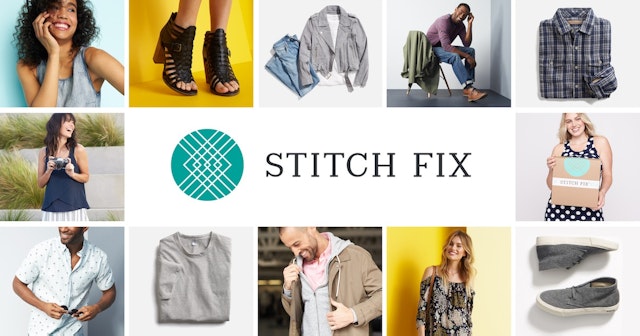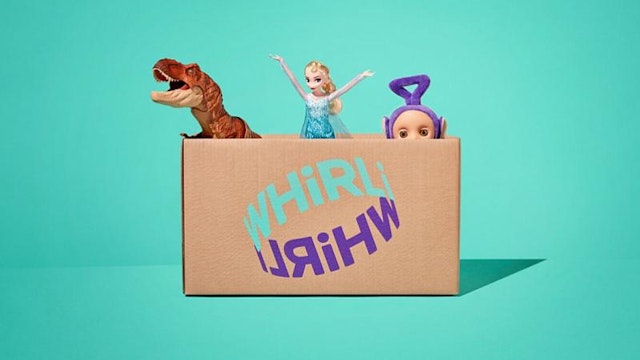Haeckels, Shein, Organic Basics – here’s why these retailers should be on your radar
While many reports on the high street make for difficult reading, as with any crisis pockets of innovation will emerge. As part of our Retail Deep Dive, The Drum asked industry experts to share the emerging retailers that have impressed them over the past year.

Here are the retailers that are stepping up their game to win over consumers

Tom Hostler, head of brand experience, Publicis Poke
The fast-fashion category, which ushered in the age of omnichannel retailing and gave many of our legacy high-street brands a run for their (customers’) money, is now finding itself challenged by a new crop of online-only, super-cheap, ‘ultra-fast’ fashion brands that are increasingly eating their lunch. And I’m not talking about Asos or Boohoo, but rather brands such as Shein and Blushmark that have designed their business models fundamentally around new mobile-centric consumer behaviors.
Firstly they eschew the traditional seasonal fashion retailing calendar in favor of a constant ‘feed’ of thousands of daily stock-keeping units (SKUs) that riff off Insta and TikTok trends so that being in-season becomes the everyday. This blend of discovery, inspiration, conversation and transaction creates a highly sociable and addictive shopping experience for a new generation of shoppers, reminiscent of the Saturday shop many of us will remember.
Secondly, they hitch their inventory and supply chain up to the same performance signals of success, so rising trends drive the SKUs’ scale, which are end-of-lined all in a matter of days.
And finally, they target super-low price points that perfectly reflect the buying power of their younger-skewing audience and reduce the need for costly returns and exchanges that eat into margins.
This formula has catapulted their apps into the download charts to overtake even the digital incumbents. And only now are they turning on the ‘traditional’ marketing techniques.
In a very short amount of time they have shown how an entire category can be re-designed to be truly digital-first, as opposed to digitizing the prevailing operational models. These are not tech-led brands trying to retail, they are customer-first brands that bring compelling and convenient shopping experiences to your commute, sofa and bedroom. Imagine that approach being applied to grocery, automotive, electricals, health and beauty... the future is only just starting.

Tom Belt, experience partner, Wunderman Thompson UK
Sustainability is a global issue and one where it is critical for retailers to demonstrate how they are responding. Organic Basics has done more than simply author a ‘sustainability pledge’.
Through the design of its low-impact website, an e-commerce experience that actively reduces the amount of data and electricity required to shop online, it has created a poorer user experience, but one that strongly communicates a genuine brand purpose and commitment to lower its respective carbon emissions.
It’s one to watch as more retailers will look to design similar sustainable experiences – leading those that don’t to be left out in the cold.

Mark Geden, head of planning, Tribal Worldwide
Here’s hoping that 2021 and the dramatic, dreadful results of climate change we are all witnessing will mean that both new and existing brands respond with what some are now calling ‘eco-venience’ retail. This trend is realized when all aspects of supply, logistics, product and consumer reach become more entwined with our need to care for the environment.
Sadly, those retailers who live by this mantra are still too few and far between.
One that does, and that I hope to see more from – both in terms of consumer awareness and its physical footprint on the high street – is Haeckels.
Haeckels is a revolutionary innovator of organic, natural and 100% vegan skincare. Everything the brand does is done with openness, honesty and transparency at its heart and sustainability at its soul, and a drive to prove there’s a better alternative to chemical skincare.
Today it has two stores, one connected to its ‘lab’ in its hometown of Margate and the recently-launched London flagship. Both stores bring a refreshingly modern mix of transaction and interaction to the retail space, with the London store featuring treatment rooms – a venue space that supports a string of community initiatives. Both stores create a warm, welcoming and intriguing destination that go far beyond the products, giving existing or new customers many reasons to visit again and again.
These diverse, inviting physical retail experiences are not let down by its digital counterparts. The website is as rich and immersive a place – combining simple, straightforward shopping with luscious, crafted stories. Everything from the full-bleed videos that introduce its inventive ‘Gamechangers’ to its full and insightful ‘Journal’ and the considered, detailed product descriptions are brimming with personality and reflect the passion for its purpose, people and brand.
Wherever you experience this brand you’re met with joy and seamlessly made to feel part of its whole sustainability ethos – from refilling your rustic brown glass bottles and jars to contact us email responses, everything is considered. Oh, and the owner responds to every single email he receives. We know – we checked.
If only more brands behaved and had values like this one, perhaps our local seas and global oceans would be looking a little less fragile.

Rachel Wells, executive creative director, MullenLowe Profero
If you haven’t read about what’s happening behind the scenes at Stitch Fix, I highly recommend doing so. It’s a brand that’s done everything possible to squash the empathy gap and truly put the customer at the heart of the experience. On the outside, it might look like a regular subscription box styling service, but beneath the surface is a fascinating mix of AI, algorithms and machine learning, crucially combined with human intelligence.
On starting the experience, customers are asked to answer basic questions about their style preferences, wardrobe goals and size requirements. This starts to build a customer profile, which, as they request a box, is fed through the recommendation engine that includes styling algorithms to help pick items and products that are right for them.
While it would have been easy for Stitch Fix to stop there, it recognized the importance of bringing humans into the curation and product selection process. Real-life stylists take the AI-generated recommendations and decide what to send the customer, enabling the brand to build a more personal and human relationship with its customers that’s strengthened by data. When the customer’s specially-selected items arrive, a written note from their stylist is included, which helps them feel like they’re receiving a money-can’t-buy, one-to-one, highly-personalized experience. They feel valued as a customer, quickly driving brand loyalty.
By bringing human stylists into play, Stitch Fix has recognized the need to inject a surprise, instinctive and emotional touch to the customer’s subscription box that data alone is never going to achieve. The system also gets more intelligent along the way. The more boxes a customer receives, the more it learns about their preferences and the items they are most likely to buy. It’s a fantastic example of a brand humanizing a digital experience to create a positive and long-lasting customer relationship.

Alice Aldridge, strategy director, AMV BBDO
As a relatively new mum, one of the things I’ve found hardest to deal with is the sheer amount of waste we now create as a family. Though I hate to admit it, in the battle between convenience and sustainability, convenience wins every time. Enter Whirli, a toy subscription service that allows parents to rent toys for as long as they want, either regularly updating them for new toys through an easy postal-swap service, or keeping them permanently. Whirli claims 60% of toys at home are not played with. The service not only alleviates parents’ guilt about the sheer amount of plastic that goes into most kids toys ending up in landfill, but reduces clutter in the home, keeps kids learning, and saves parents a fortune. A recent cash injection will likely see this deserving company grow rapidly.
For more on the reinvention of retail, check out The Drum’s Retail hub, where we explore everything from livestreaming e-commerce to AR shopping and conscious consumerism.

